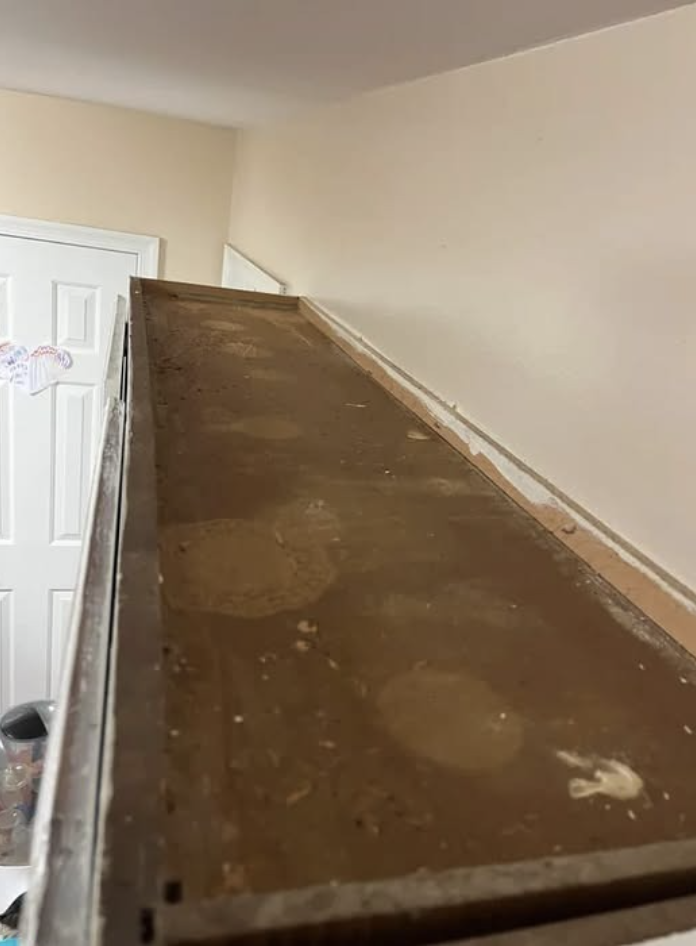- Fill a bucket with warm water and add a few drops of dish soap.
- Dip a microfiber cloth or sponge into the soapy water, wring it out, and wipe down the cabinets.
- Pay extra attention to areas near the stove where grease buildup is often the worst.
2. Use a Vinegar Solution for Tough Grease
- Mix equal parts white vinegar and water in a spray bottle.
- Spray the solution onto the greasy areas and let it sit for 5–10 minutes.
- Wipe the cabinets with a damp cloth. For stubborn spots, use a soft toothbrush to scrub gently.
3. Tackle Stubborn Grease with Baking Soda
- Sprinkle baking soda onto a damp sponge or cloth.
- Scrub the greasy spots gently in circular motions.
- Wipe clean with a damp cloth to remove any residue.
4. Optional: Lemon Juice for Shine
- Mix lemon juice with warm water for a natural degreaser and fresh scent.
- Wipe the cabinets with this mixture, then buff dry with a clean microfiber cloth.
Step 3: Remove Odors from Inside the Cabinets
1. Empty the Cabinets
- Remove all items from the cabinets to access every corner.
2. Clean the Interiors
- Wipe down the inside of the cabinets using the vinegar solution or soapy water.
- Dry with a clean cloth to prevent moisture buildup.
3. Absorb Odors
- Place small bowls of baking soda, activated charcoal, or coffee grounds inside the cabinets to absorb smells.
- Replace these every few days until the odor is gone.
4. Add a Fresh Scent
- Add a few drops of your favorite essential oil to a cotton ball or dryer sheet and place it in the cabinet for a pleasant scent.
Step 4: Prevent Future Grease and Smell Buildup
- Wipe Regularly: Clean the cabinets weekly with a damp cloth to prevent grease accumulation.
- Use a Degreasing Spray: Apply a light degreasing cleaner to high-traffic areas near the stove.
- Ventilate While Cooking: Use the exhaust fan or open windows to reduce airborne grease and odors.
- Line Shelves: Use shelf liners to make cleaning spills and crumbs easier.
- Store Odor-Prone Items Properly: Keep items like onions, garlic, or spices in airtight containers.
Additional Tips
- Avoid Abrasive Scrubbers: These can damage the cabinet finish.
- Test Before Cleaning: If your cabinets have a special finish, test any solution on a small, hidden area first.
- Use Gentle Products: Harsh chemicals can discolor or strip the finish of wooden cabinets.
By following these steps, your kitchen cabinets will be grease-free and fresh-smelling in no time! Regular cleaning and maintenance will keep them in excellent condition, ensuring your kitchen always looks and feels inviting. ✨
continued on next page
